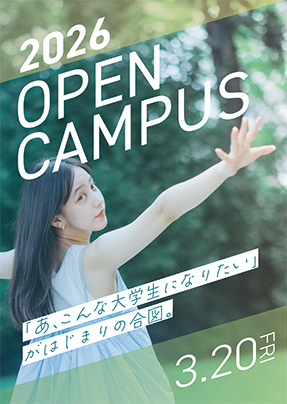Professor
Masaki Yamanaka

Profile
| Specialized Field | Modern Japanese literature, contemporary thought (epistemology), literary criticism theory, Japanese language education |
|---|---|
| Research theme | 1. Modern Japanese Literature: Research into modern and contemporary "non-realistic novels" by authors such as Yasunari Kawabata, Haruki Murakami, Hiromi Kawakami, and Kiyoko Murata. 2. Modern thought (epistemology): Neuroscience, cognitive neuroscience, modern physics, philosophy, Yogacara From these perspectives, we will elucidate the deep human psychology and worldview depicted in literary works. 3. Contemporary Literary Theory: Research into literary criticism theory, focusing on theories of "narrative" and "space-time." 4. Japanese language education: Research into the value of novels as teaching materials in Japanese language education. |
| Subjects in charge | Special Lectures on Japanese Literature B, Literary Criticism I and II, Studies on the Works of Modern Japanese Literary Authors A, Readings in Modern Japanese Literature, Introduction to Modern Japanese Literature, Introduction to Expression Culture, Literature: Introduction to Japanese Literature, History of Japanese Literature, Practical Seminars for Teaching Profession (Junior and Senior High School Japanese Language), Seminars I to IV |
| Seminar Theme | Research on modern Japanese literature, including Natsume Soseki, Akutagawa Ryunosuke, and Dazai Osamu, literary theory, and Japanese language education |
| Main career, work history, and academic background | Born in Nagoya, Aichi Prefecture. Doctor of Literature. Graduated from Nanzan Faculty of Letters, Department of Philosophy. After working as a Japanese language teacher at an Aichi Prefectural High School, completed the doctoral program (majoring in Japanese literature) at Nagoya University Graduate Graduate School of Letters. After Lecturer in the Japanese Culture Department at Toyota Junior College, an associate professor in the Faculty Faculty of Letters at Ohka Gakuen University, and an associate professor Faculty of Letters at Soka University, he assumed his current position in April 2012. |
| Affiliated academic societies and organizations | Modern Japanese Literature Association, Japanese Literature Association, Showa Literature Association, Interpretation Society, Yasunari Kawabata Society, |
| Main Papers and Publications | "The Mishima Yukio Dictionary" (co-author, Bensei Publishing), "A glossary of terms for 'reading': Literary research and literary education" (co-author, Sobunsha Publishing), "An introduction to the theory of expression culture: an invitation to intermediality" (co-author, Daisanbunmeisha), "The theory of thirds opens up new avenues for literary research and literary education: elementary schools" (co-author, Meijitosho), "Writing methods for high school students" (Sankei Publishing), "Kawabata Yasunari: The structure of literature and the creation of beauty" (Tei Shobo), "Seeing the invisible world: non-realistic novels in modern Japan" (Daisanbunmeisha), etc. |
| Message | "Dream comes true!"(Walt.Disney) ``Become a melancholy after the past'' "Don't rush, don't get discouraged, don't give up" (Message for seminar students) |
| others | Hobbies: Listening to music (classical, jazz, J-POP, ambient music), watching movies, appreciating traditional Japanese performing arts, traveling, taking photos of the sky, clouds and other landscapes E-mail:yamanaka@soka.ac.j
|
| Specialized Field | Modern Japanese Literature |
|---|---|
| Research theme |
|
| research content | My major is the study of Japanese novels from the Taisho and Showa periods, as well as contemporary thought, contemporary culture, and literary criticism. I am particularly focusing on the literature of Yasunari Kawabata. From the perspective of "time," "space," and "narration" in Kawabata's work, I have been examining the structure and characteristics of Kawabata's work, as well as the world of "beauty" that it depicts. |
| Research and Education Policy | In the future, I would like to further explore Kawabata Yasunari's literary world, based on the results of my research so far. In particular, I would like to investigate Kawabata's understanding of "Japanese beauty and tradition," and ultimately shed some light on the characteristics of Japanese literature. From the perspective of "the acceptance of Japanese literature in the world," I am also interested in the theme of how modern and contemporary "Japanese literature" is accepted and taught overseas. In this regard, I would like to advance my research in collaboration with "Japanese literature researchers" in China and Korea (first in the Northeast Asian region). |
| Message | I place importance on dialogue with students, and hope to build a relationship where we can sincerely learn from each other. Let's exchange opinions on anything and keep discussing! |
| Specialized Field | Modern Japanese Literature |
|---|---|
| Research theme |
|
| research content | My major is the study of Japanese novels from the Taisho and Showa periods, as well as contemporary thought, contemporary culture, and literary criticism. I am particularly focusing on the literature of Yasunari Kawabata. From the perspective of "time," "space," and "narration" in Kawabata's work, I have been examining the structure and characteristics of Kawabata's work, as well as the world of "beauty" that it depicts. |
| Research and Education Policy | In the future, I would like to further explore Kawabata Yasunari's literary world, based on the results of my research so far. In particular, I would like to investigate Kawabata's understanding of "Japanese beauty and tradition," and ultimately shed some light on the characteristics of Japanese literature. From the perspective of "the acceptance of Japanese literature in the world," I am also interested in the theme of how modern and contemporary "Japanese literature" is accepted and taught overseas. In this regard, I would like to advance my research in collaboration with "Japanese literature researchers" in China and Korea (first in the Northeast Asian region). |
| Main career, work history, and academic background | Nagoya University Graduate School |
| Message | I place importance on dialogue with students, and hope to build a relationship where we can sincerely learn from each other. Let's exchange opinions on anything and keep discussing! |


